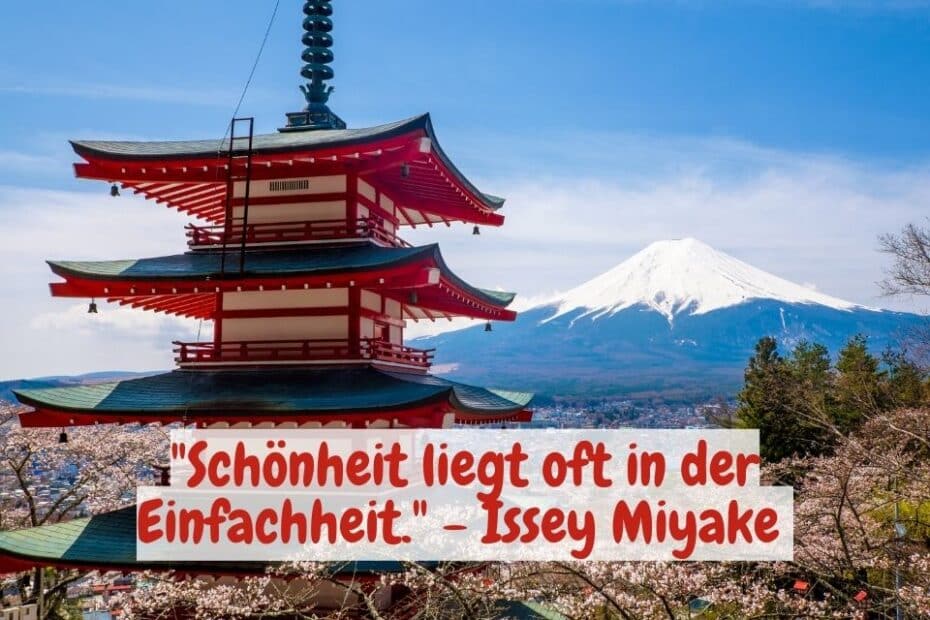Last updated on January 12, 2024 by Roger Kaufman
Amidst blooming cherry blossoms and the gentle rustle of bamboo forests, Japan has a rich history and culture that is reflected in its language and in its proverbs is anchored.
Welcome to Japanese Proverbs | 31 emotional jewels
Each of these proverbs, or as they say in Japanese, 'Kotowaza', is a jewel that carries a wisdom, an emotion or a deep-rooted cultural meaning.
They reflect the essence of the Japanese people, their connection to Nature, their philosophy and their views on life.
In this series we will explore some of the most well known as well as some of the lesser known 'Kotowaza', uncovering the emotional essence and the Stories discover behind these words.
From proverbsIllustrating the fleeting beauty of life, to those highlighting the strength and endurance of the human spirit, each 'Kotowaza' is a window into the Japanese soul.
Join us on this journey of discovery, immerse yourself in the world of Japanese jewels and experience Japan in a way you may never have experienced before.
Let's delve into the captivating, emotional and profound world of... Japanese proverbs immerse
From art to wisdom | 15 Japanese Quotes That Inspire
“In art, as in life, anything is possible provided it is designed in a compelling way.” – Akira Kurosawa (Director)
“Creativity means eliminating stereotypes.” – Kenzo Takada (Fashion designer)
“In the middle of the Life is death. So death is alive.” - Haruki Murakami (Writer)
“It is not enough to simply live. It is necessary to have sunshine, freedom and a little flower.” - Hans Christian Andersen
“We must not only work but also dream; not only plan, but also believe.” – Anatole France

“People create machines and we form their hearts and their soul and build humanity into them.” – Soichiro Honda (Founder of Honda)
“Whenever I see a problem, I give thanks because I have the opportunity to find a solution.” –Daisaku Ikeda (Philosopher)
“Beauty often lies in simplicity.” –Issey Miyake (Fashion designer)
“There is nothing that lasts longer than the temporary nature of the world.” – Yoshida Kenko
“What we do today determines what the world will look like tomorrow.” – Marie Curie

“I’ll tell you a secret: everything is temporary.” – Junji Ito (Manga artist)
“When you paint, leave theory behind and paint as one Child." – Utagawa Hiroshige (Painter)
“What defines us is what we put into it most difficult times do." –Shigeru Miyamoto (video game designer)
“Life is valuable. Not because it’s rare, but because it’s unique.” – Ryunosuke Akutagawa (Writer)
“True simplicity is to say, do and be what is necessary and nothing more.” - Masanobu Fukuoka (farmer and philosopher)
Japanese proverbs | emotional jewels

- 七転び八起き (Nanakorobi yaoki)
- Translation: “Fall seven times, get up eight times.”
- Meaning: No matter how many times you fail, you should always get back up and keep going.
- 石の上にも三年 (Ishi no ue ni mo sonnen)
- Translation: “Three years on a rock.”
- Meaning: Patience and perseverance pay off.
- 三日坊主 (Mikka bōzu)
- Translation: “A monk for three days.”
- Meaning: A person who starts something new but quickly gives up on it.
- 猿も木から落ちる (Saru mo ki kara ochiru)
- Translation: “Monkeys also fall from trees.”
- Meaning: Everyone does Error, no matter how experienced he is.
- 蓼食う虫も好き好き (Tade kuu mushi mo suki zuki)
- Translation: “There are insects that like bitterweed.”
- Meaning: Everyone has their own taste.

- 花より団子 (Hana yori dango)
- Translation: “Dango instead of flowers.”
- Meaning: Practical things are more important than aesthetics.
- 知らぬが仏 (Shiranu ga hotoke)
- Translation: “Ignorance is bliss.”
- 井の中の蛙大海を知らず (I no naka no kawazu taikai o shirazu)
- Translation: “A frog in a well does not know the great ocean.”
- Meaning: An Person with limited knowledge or experience has a limited perspective.
- 塵も積もれば山となる (Chiri mo tsumoreba yama to naru)
- Translation: “Even dust, when it accumulates, becomes a mountain.”
- Meaning: Little things can accumulate into something big.
- 十人十色 (Jūnin toiro)
- Translation: “Ten people, ten colors.”
- Meaning: Everyone has their own personality or preferences.

- 旅行は身の上の学び (Ryokō wa mi no ue no manabi)
- Translation: “Traveling is learning.”
- 悪銭身に付かず (Akusen mini tsukazu)
- Translation: “Dirty money doesn’t last long.”
- 焼け石に水 (Yakeishi ni mizu)
- Translation: “Pour water on a hot stone.”
- Meaning: A wasted effort that has little or no impact.
- 釘の穴がもっとも大きい (Kugi no ana ga mottomo ōkii)
- Translation: “The hole in a nail is the largest.”
- Meaning: Small neglects can cause big problems.
- 虎の威を借る狐 (Tora no io karu kitsune)
- Translation: "A Fox, who borrows the power of the tiger.”
- Meaning: Hiding behind a more powerful person or thing to gain respect or fear.
- 頭隠して尻隠さず (Atama kakushite shiri kakusazu)
- Translation: “Hide your head, but don’t hide your butt.”
- Meaning: Taking a half measure or only doing something partially.
FAQ for “Japanese Jewels: A Journey of Discovery through Emotional Proverbs”
What is the purpose of this journey of discovery?
My goal is to explore the depth and beauty of Japanese proverbs and how they shape Japanese Culture, philosophy and way of life.
How were the proverbs chosen?
The proverbs have been carefully selected from a mix of classical texts and folk wisdom to cover a wide range of emotions and life wisdom.
Is there a translation or interpretation for each saying?
Yes, each proverb is presented along with an English translation and a brief interpretation to clarify the context and meaning.
Why was the focus specifically placed on Japan?
Japan has a rich history of literature and philosophy. By immersing ourselves in his proverbs, we can gain a multifaceted perspective on Japanese culture and its values.
Can I share my own interpretations or experiences?
Of course! We value the exchange of thoughts and interpretations and welcome you to contribute in the comments or in the designated forum areas.
Are there plans to create similar explorations for other cultures?
Yes, this is the first in a planned series. I am always interested in exploring the wisdom and culture of different peoples.
Is the content suitable for all ages?
Yes, the content is family friendly and suitable for all ages, although some proverbs can be profound and therefore may require guidance or additional explanation from younger readers.








